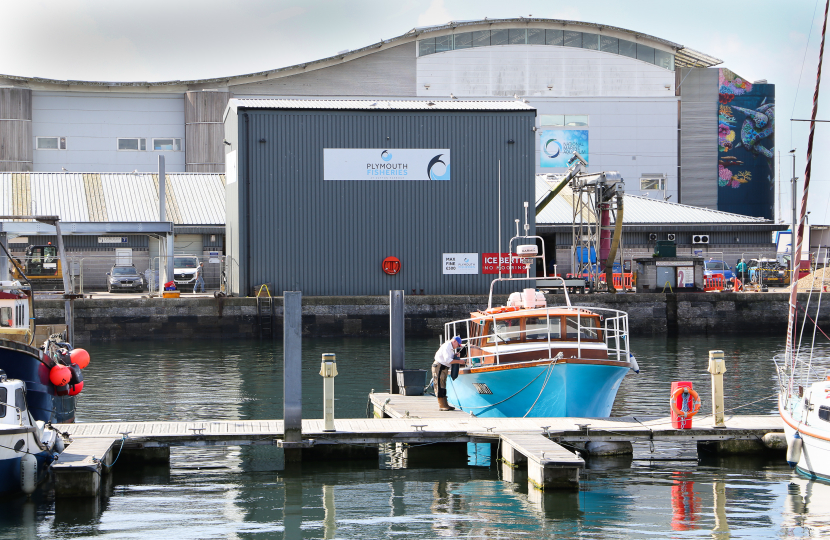
Environment Secretary Theresa Villiers, today (24 October 2019) delivered a boost for the English fishing and seafood industry ahead of Brexit by opening applications for £15.4 million from two UK fishing funds.
The £14.7 million share of a £37.2 million UK-wide fund announced last December, will encourage the take up of innovation and technology, supporting jobs in coastal communities. In addition, £700,000 from a £2 million UK-wide fund announced in the 2018 Budget is ring-fenced for fishing safety improvements on board English vessels and around ports and harbours.
English fishermen and those working in the seafood sector will today be able to apply for a share of the new Maritime Fisheries Fund (MFF), which is designed to ensure the fishing and seafood industry continues to thrive once the UK leaves the EU on 31st October.
The three-year fund builds on the government’s commitment to secure a fairer share of fishing opportunities for UK fishermen as it takes back control of fishing waters and establishes the UK as an independent coastal state.
Environment Secretary Theresa Villiers, said:
We are taking back control of our waters and establishing the UK as an independent coastal state, with a fairer share of fishing opportunities for the whole of the UK fleet.
We are committed to a thriving fishing and seafood industry, and this funding will support innovation, jobs, safety at sea and help establish new markets and opportunities as we leave the EU.
Barrie Deas, Chief Executive, National Federation of Fishermen’s Organisations said:
I would encourage all fishermen to look closely at this new fund to see if it can help their businesses adjust to the new circumstances we will be operating under as the UK emerges as an independent coastal state.
The fund in England is open to applications that:
- support innovation - in technologies to enhance economic growth, increase energy efficiency, reduce environmental impact and improve fishing safety
- improve port infrastructure - so more fish can be landed in UK ports, and help the sector take advantage of new export opportunities after Brexit
- boost coastal communities - by providing benefits to areas that depend on a vibrant and profitable industry
- help the sector adjust - to new arrangements on access and fishing opportunities by improving capacity and capability to exploit new export opportunities and markets, and
- improve safety on fishing vessels or on shore - funding safety measures that prevent accidents such as new handrails and ladders
This fund is in addition to the existing European Maritime and Fisheries Fund (EMFF) funding. The government has already guaranteed that all EMFF projects approved before 31 December 2020 will be fully funded, bringing the total support package available to the UK fisheries sector from 2016 to 2022 to £320 million.
The government has also already committed to put in place new, domestic, long-term arrangements to support the UK’s fishing industry from 2021, through the creation of four new schemes comparable with the EMFF to deliver funding for each nation. The Devolved Administrations will each lead on their own schemes.
This new fund is open for applications in England from today until March 2022. Submissions are to be made through the Marine Management Organisation here.
Note to Editors:
- Of the total £37.2 million Maritime and Fisheries Fund, £14.7 million will be available in England, with a further £22.5 million shared across the Devolved Administrations: £16.5 million in Scotland, £2.4 million in Wales and £3.6 million in Northern Ireland. The Devolved Administrations are responsible for administering their allocations and will update on how they are investing the funding in due course.
- In addition, England will receive £700,000 for fishing safety projects which is open for applications until 2021. This funding will support commitments made in the government’s Maritime Safety Action Plan and important work by the Fishing Industry Safety Group to eliminate all preventable deaths in the industry by 2027.
- Funding will be awarded for privately funded industry projects with a total cost of less than £2 million.
- The full criteria for applications is published here.




